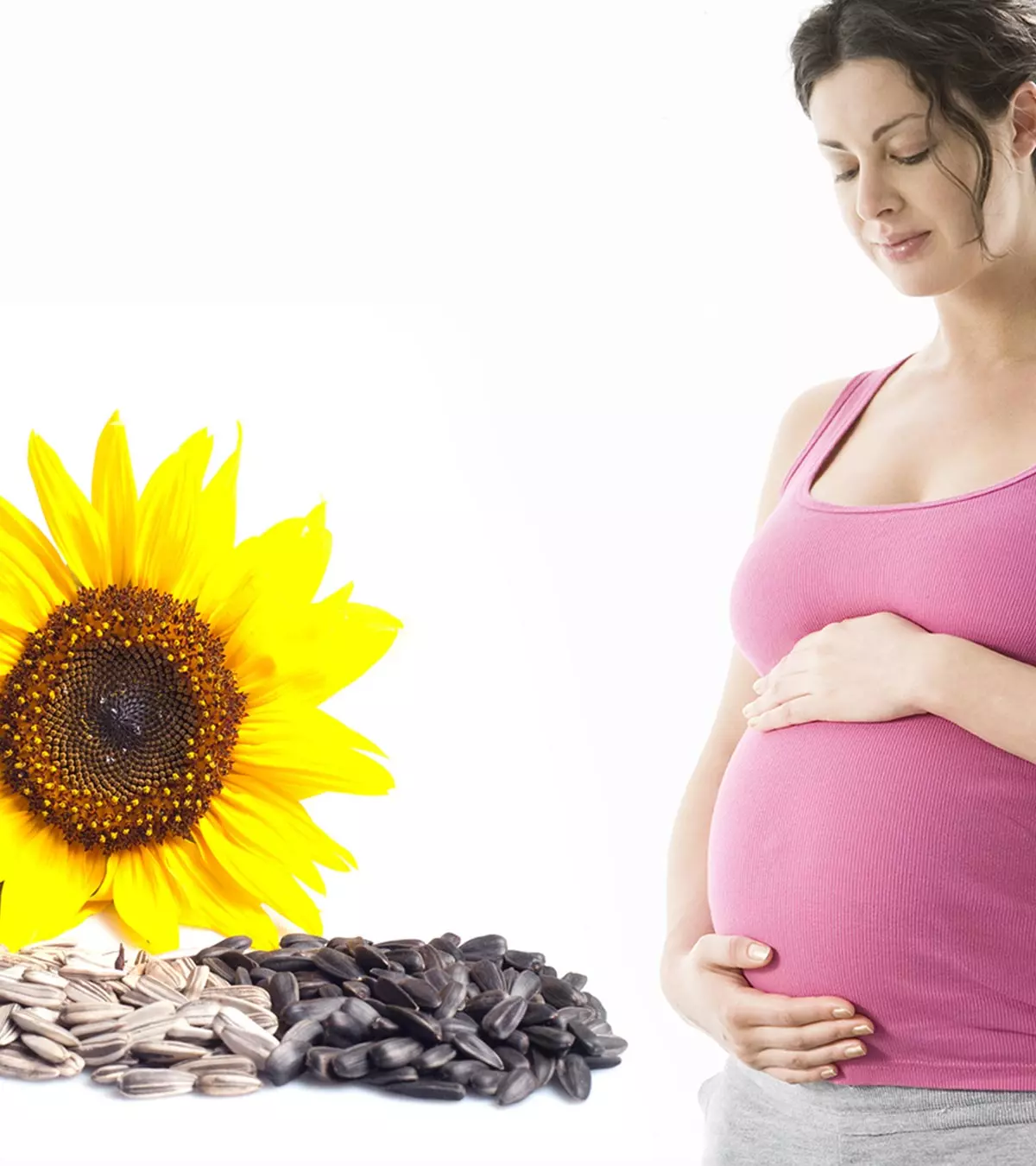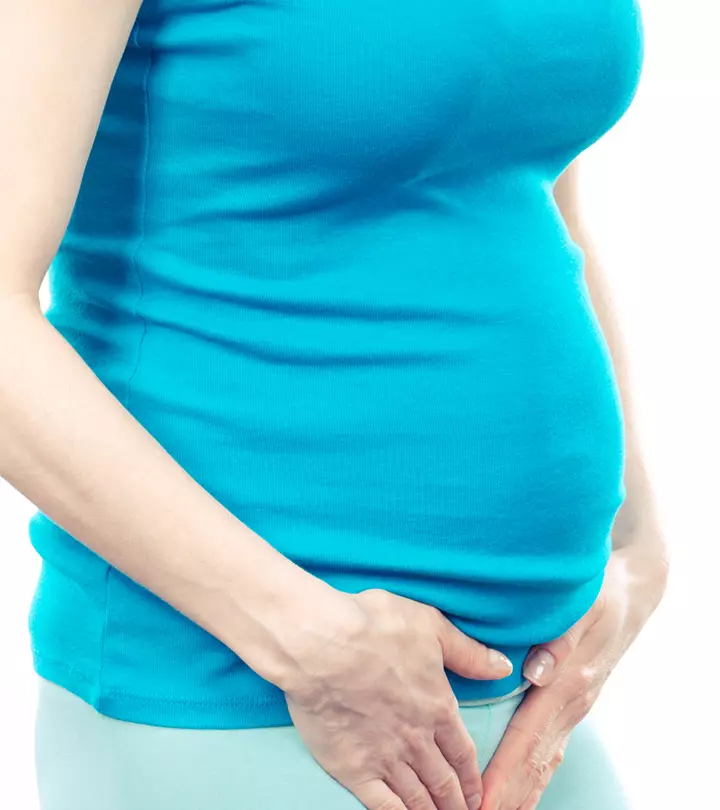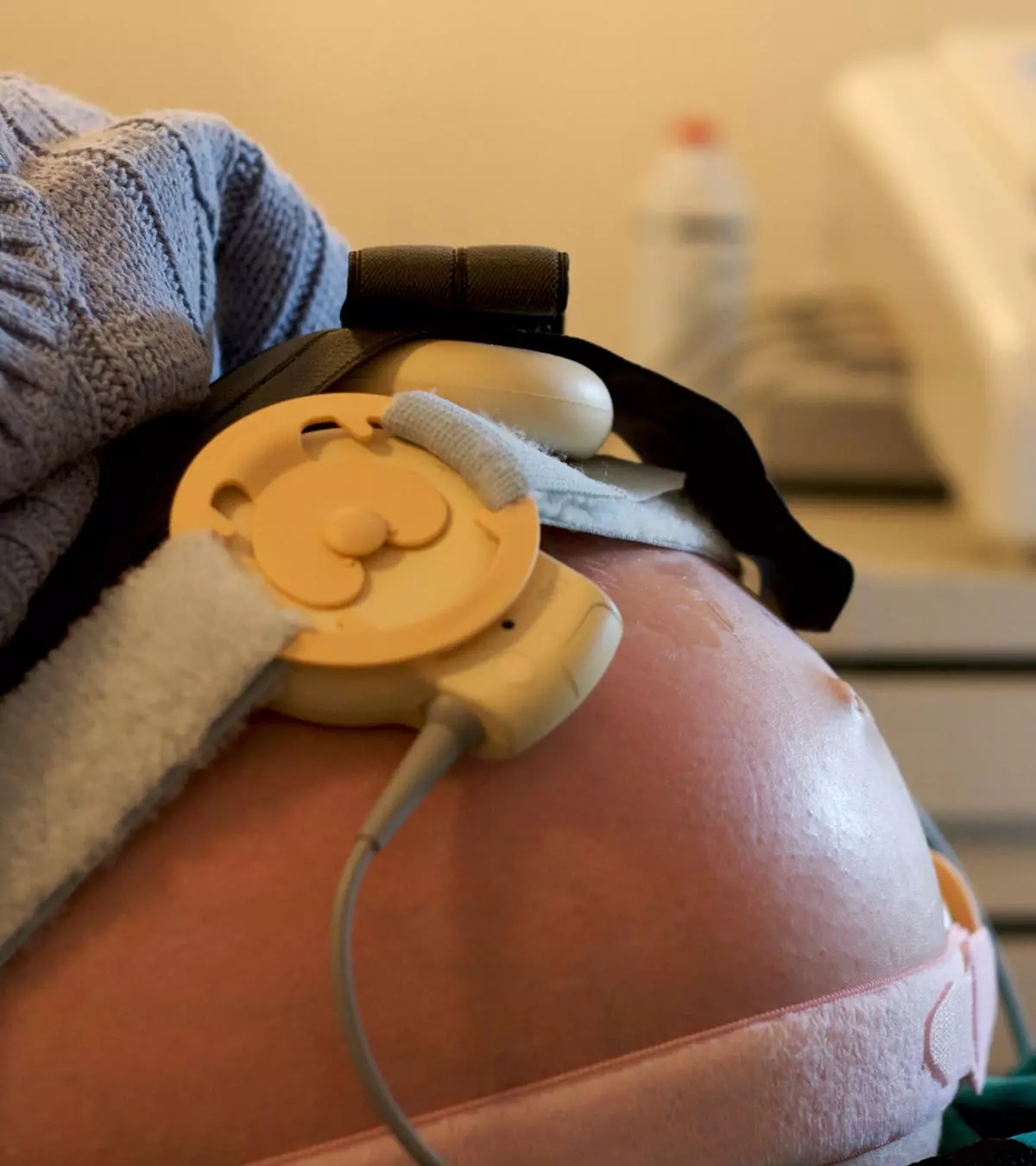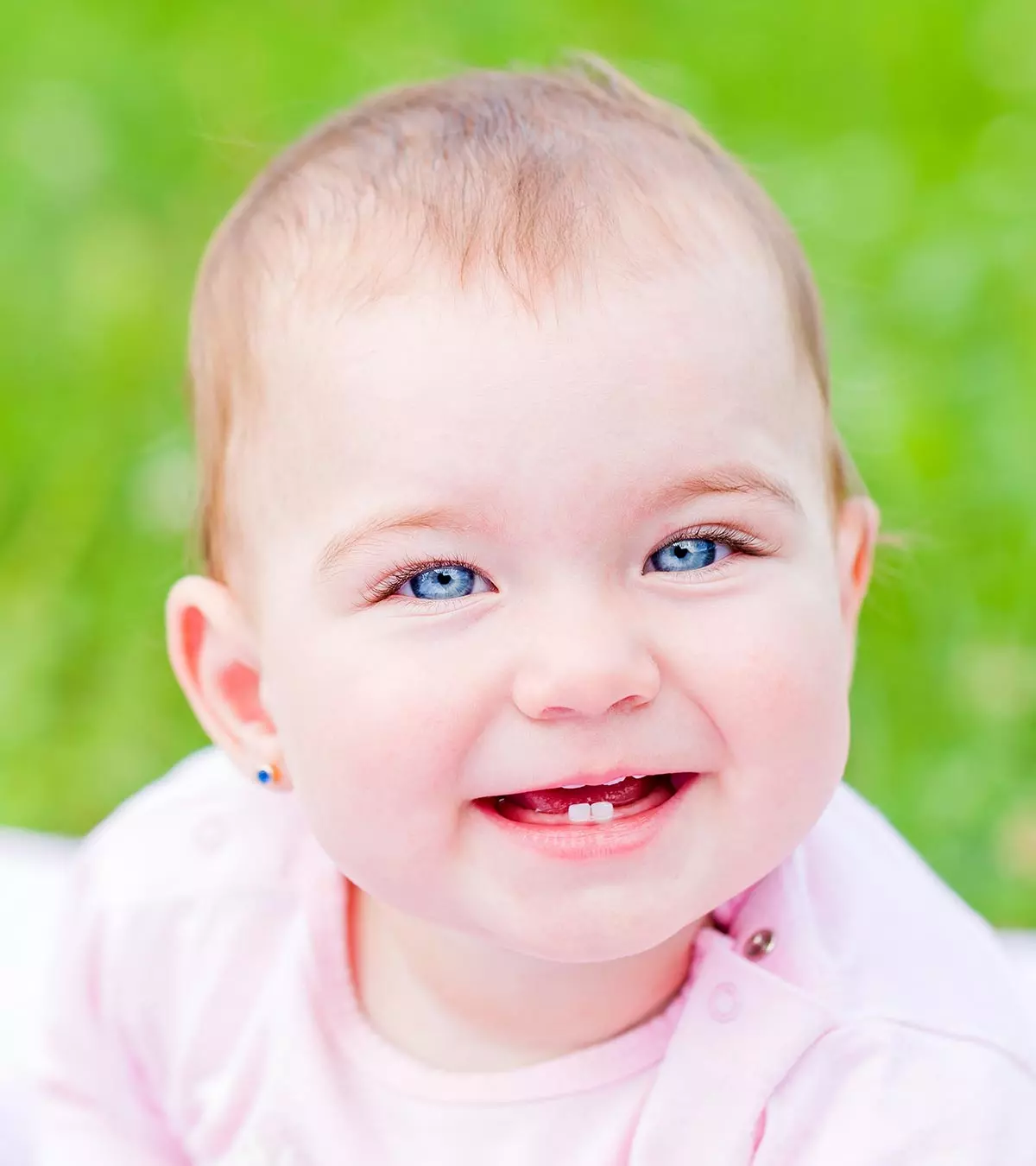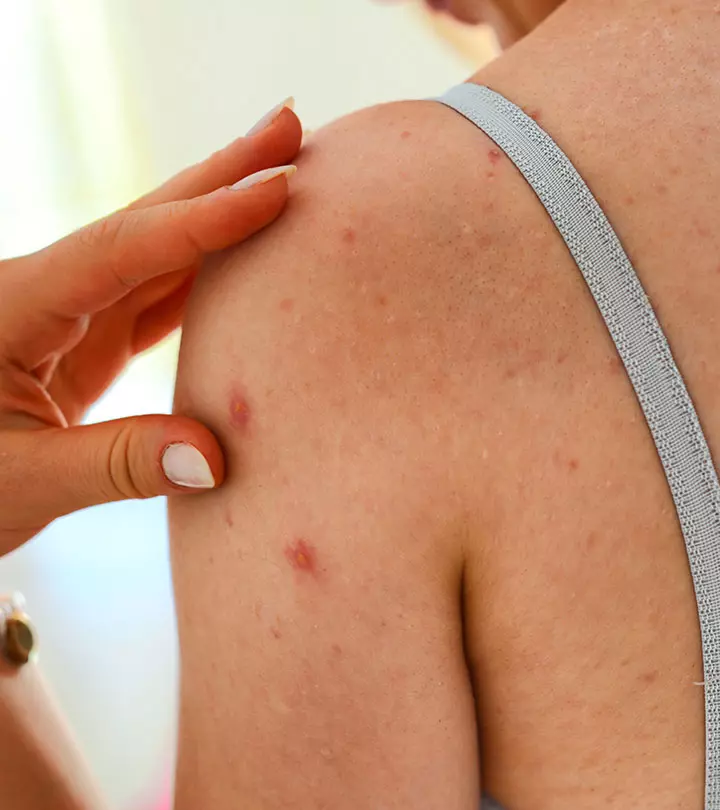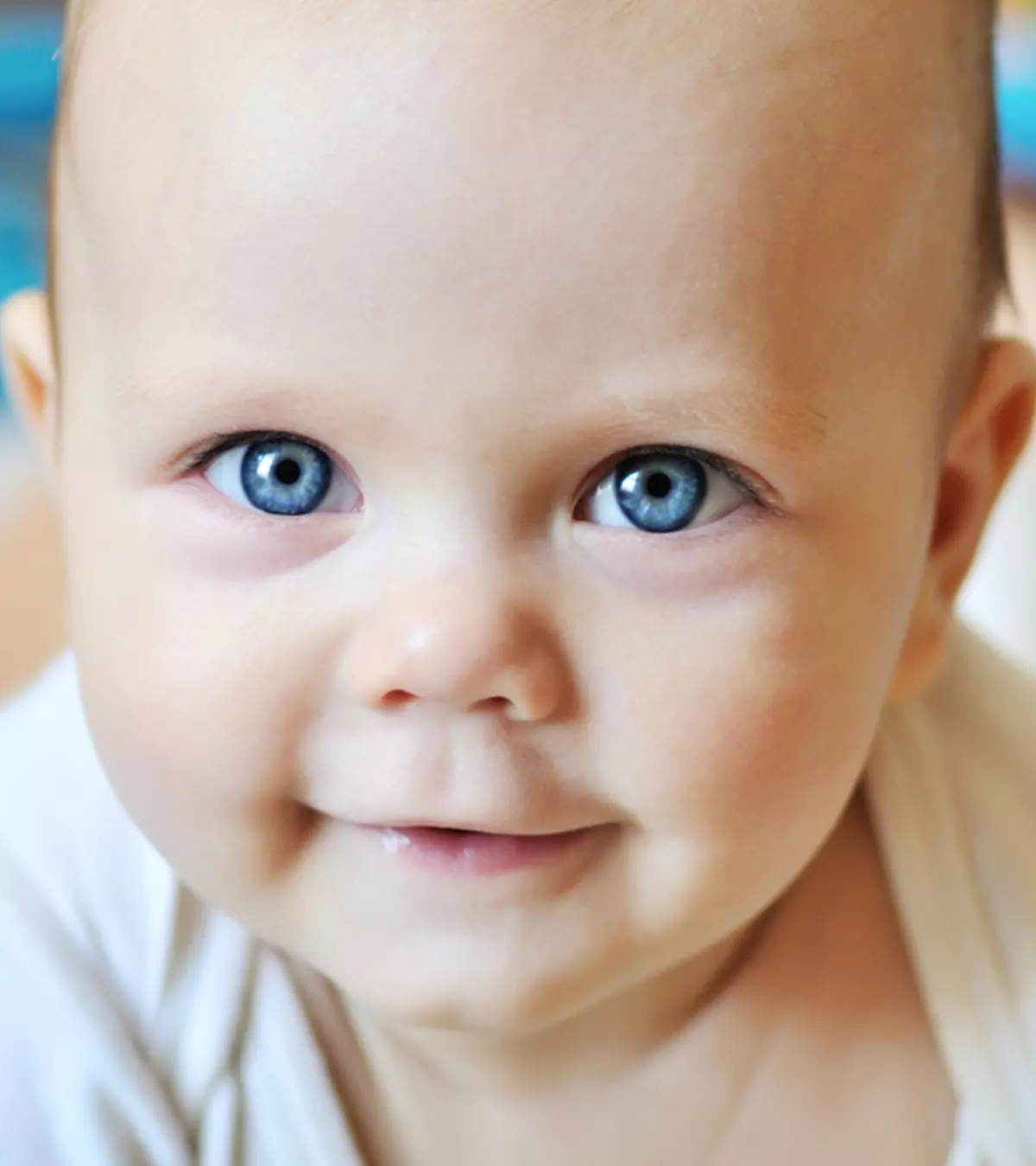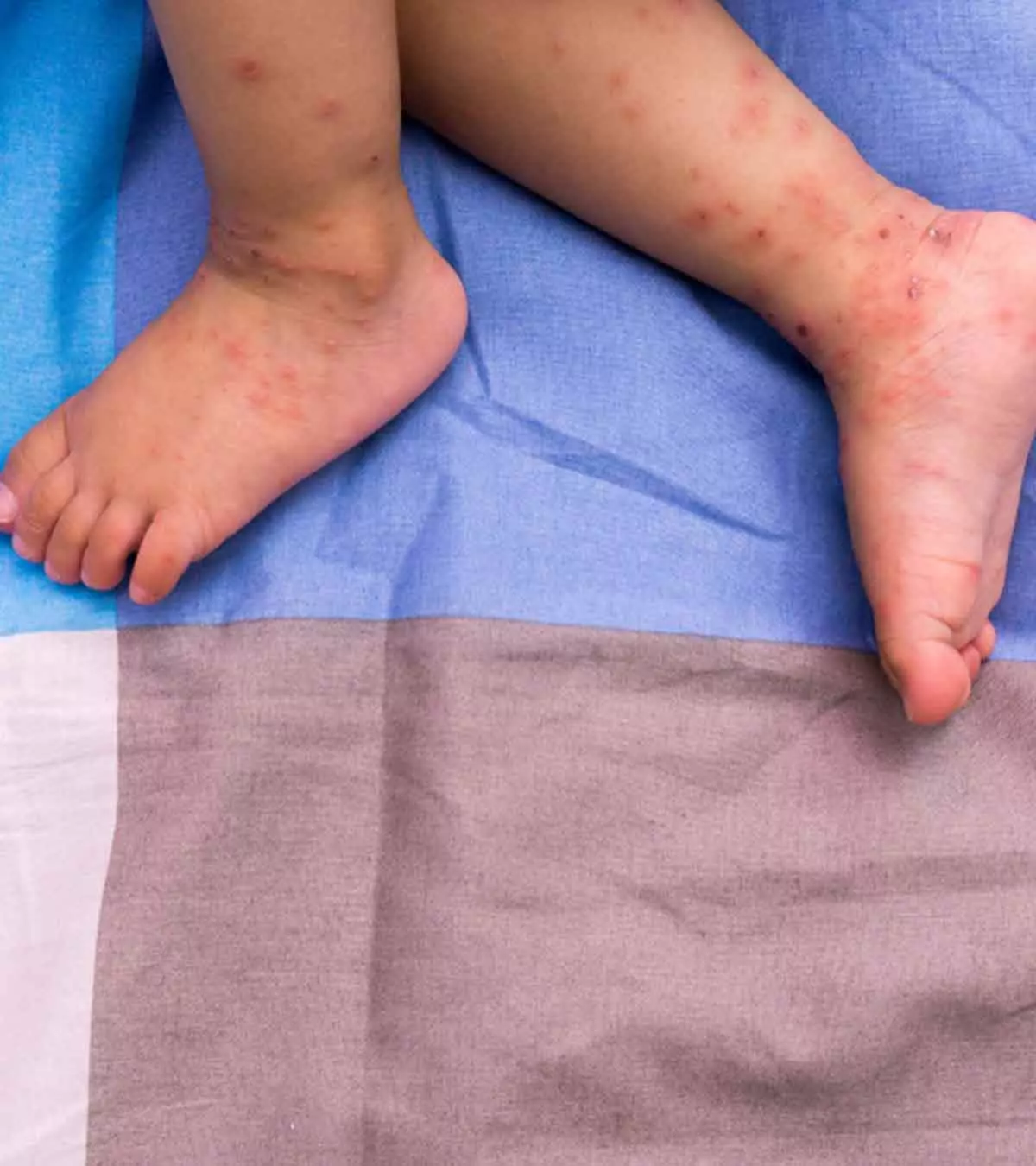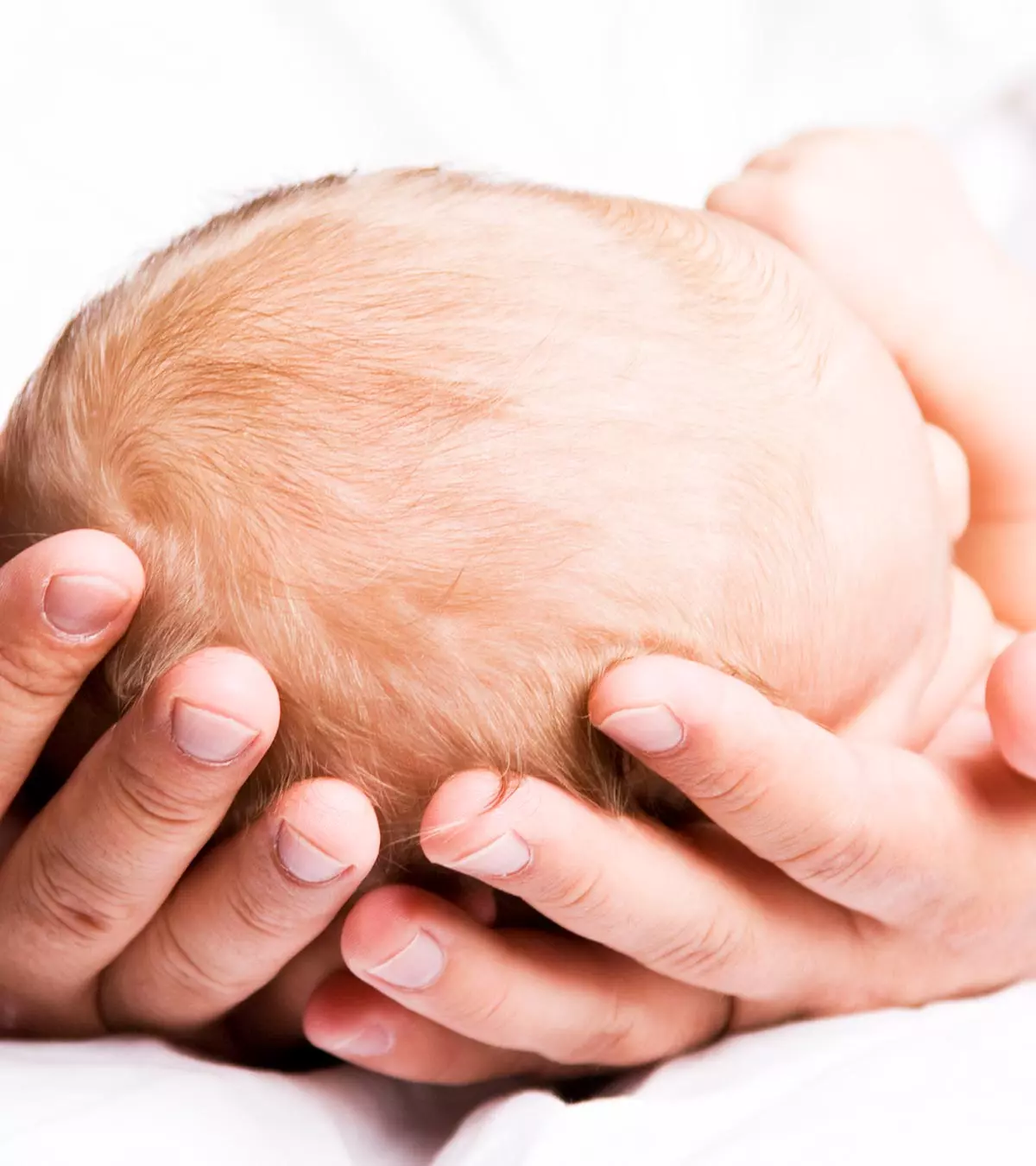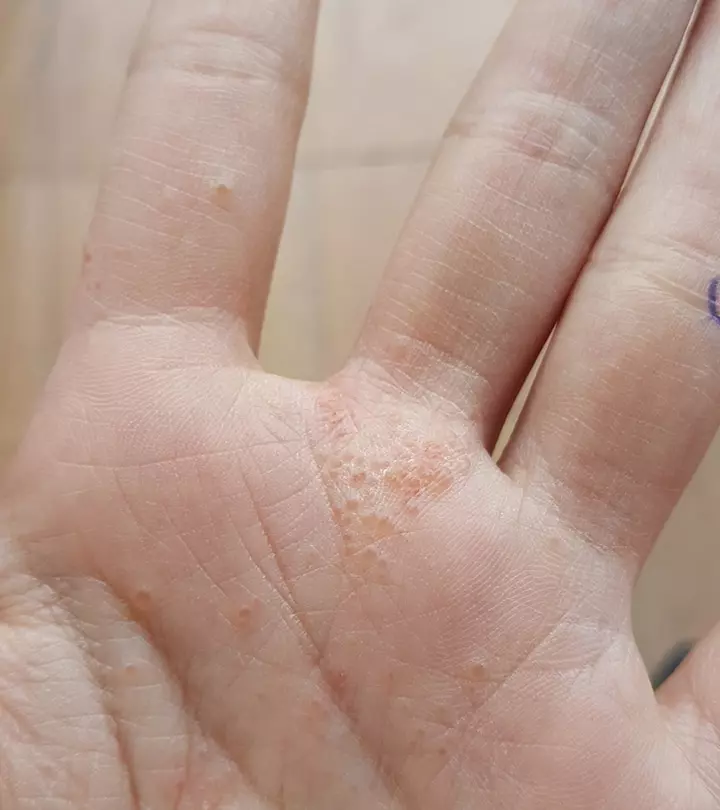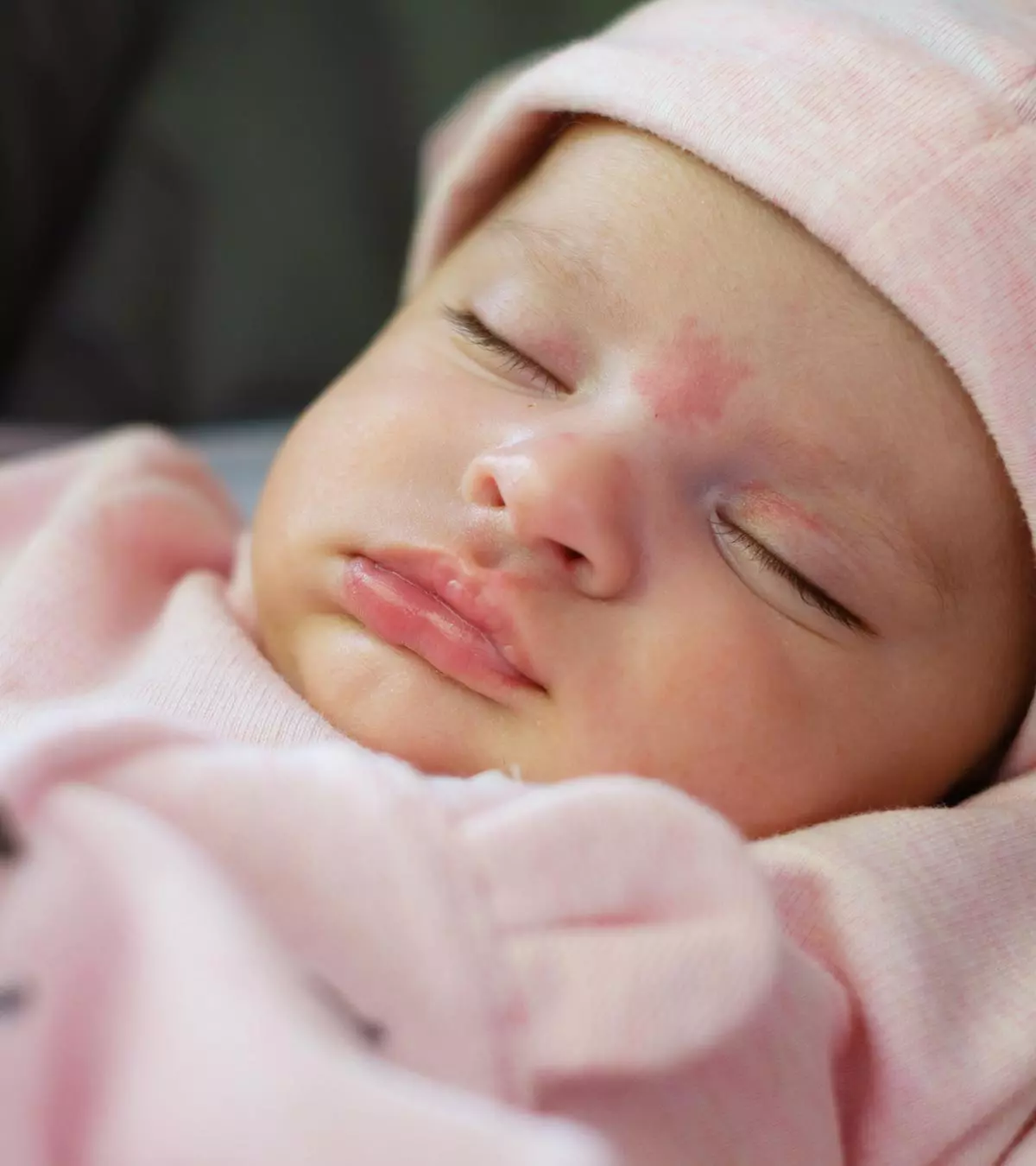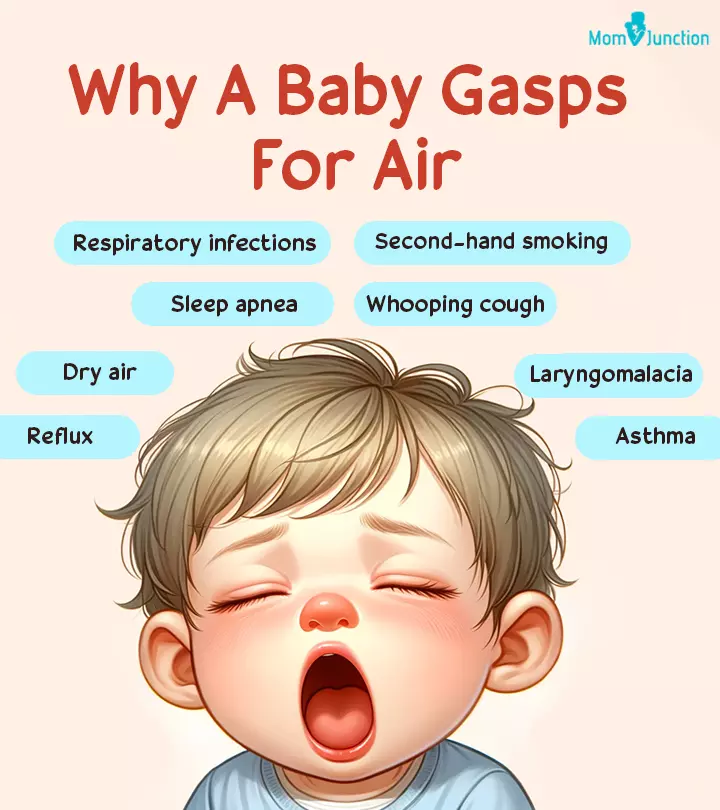
Image: Created with Dall.E
It is concerning for a new parent to see a baby gasp for air. However, a baby gasping for breath is not always a matter of worry. Usually, babies gasp for air if something is stuck in their throats. Often, extra mucus during cold tends to be that obstruction.
As their respiratory system matures with their age, babies tend to grow out of this habit of gasping. It’s essential to understand that while some instances may be normal, being informed about the signs that indicate a more severe condition can help ease your worries. Read on to know the reasons that make a baby gasp for air and the causes of concern.
Key Pointers
- Newborn babies can gasp for air immediately after birth since their lungs are not yet ready.
- Gasping for air in babies can signify respiratory infection, asthma, laryngomalacia, secondhand smoke exposure, sleep apnea, and pertussis infection.
- Knowing the risks and taking preventive measures such as vaccinating and avoiding smoke exposure can prevent many causes of gasping of air in babies.
Possible Causes Of Baby Gasping For Air
A newborn baby is born with non-inflated lungs that are filled with fluid. The baby takes their first breath in about ten seconds after birth, and this breath may sound like they are gasping for air (1). Beyond their first breath, the following conditions may cause a baby to gasp for air while breathing.
1. Respiratory infections

Image: Shutterstock
Infections of the nose, sinuses, throat, airway, or lungs are known as respiratory tract infections. Viruses such as rhinoviruses, influenza, parainfluenza, respiratory syncytial virus, enterovirus, coronaviruses, and some strains of adenoviruses are the leading causes of respiratory infections, such as croup, bronchiolitis, pneumonia, common cold and influenza in infants (2).
Respiratory infections cause excess mucus secretion and inflammation of the respiratory tissues, causing gasping due to difficulty breathing. Other signs and symptoms include fever, cold, cough, sore throat, and pain in the ear (3).
 Quick fact
Quick fact2. Asthma
Asthma is a disease characterized by chronic inflammation of the airways.
The root cause of asthma is unknown (4). but may be associated with allergies. Check with your pediatrician if any dietary changes are needed. According to the Asthma and Allergy Foundation of America, asthma in babies can result in wheezing, panting, labored breathing, persistent coughing, difficulty sucking, and fatigue (5). It is not always easy to diagnose asthma in an infant but seems to be more common in babies with recurrent bronchiolitis, a viral infection affecting the small airways. According to the Centres for Disease Control and Prevention survey data for 2016-2018, approximately 8% of US children between 0-17 years reported having asthma at the time, among which 8.1% of those affected were children under 17. It suggests that asthma can affect children across different age groups, including babies.
3. Exposure to second-hand cigarette smoke
Smoking in the same room as the baby may irritate their respiratory tracts. It may also lead to asthma. Therefore, smokers should be discouraged from smoking in the house where the baby lives (4).
4. Laryngomalacia
LaryngomalaciaiA congenital abnormality of the cartilage in the larynx. It is a common cause of noisy breathing in infants. is the leading cause of noisy breathing in infants. It happens due to floppy tissues above the vocal cords. It resolves on its own in 70% of infants by the time they are one year old and in 90% of toddlers by the time they are two years old (6). Rarely, a surgery is needed, especially if the laryngomalacia interferes with feeding.
According to Po-Chang Hsu, MD, MS, medical content expert at SleepingOcean, “In most cases, gasping noises are considered normal in babies. They typically occur because of the extra tissue around the baby’s voice box. Gasping noises also occur because the baby’s voice box isn’t well-developed yet (it’s softer and more floppy than in adults). The noise usually disappears before the baby turns 2.”
An anonymous mother of two and blogger shares the symptoms of laryngomalacia her daughter exhibited. She says, “I remember a few nights after Tillie was born hearing strange noises when she was breathing… I buzzed the nurse to check her breathing but was told, ‘It is just mucous on her lungs. It is very common, and it won’t last long’… This ‘mucous’ was getting louder and louder, and by her 6/8 week check-up, it was quite noticeable, the Dr said. “Your daughter has laryngomalacia, but don’t worry, I have heard much worse. She will grow out of it.”
“Now, at 17 months, it is extremely rare to hear her noisy breathing apart from if she is unwell or teething (i).”
5. Sleep apnea
Sleep apnea is a sleep-related breathing disorder. Obstructive sleep apnea occurs due to the narrowing of passages between the nose and the lungs. Babies with sleep apnea may pause for breaths, gasp for air, and have noisy breathing (7).
6. Pertussis (Whooping cough)
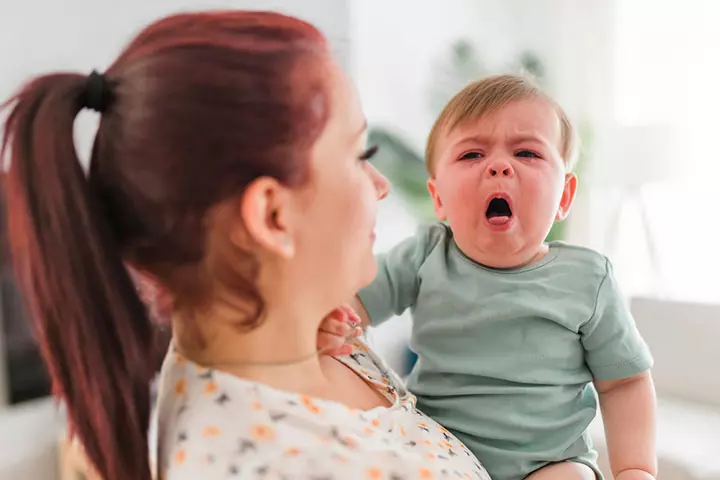
Image: Shutterstock
Whooping cough is a contagious bacterial infection. Babies with pertussis infection make a whooping sound when they breathe in after coughing (8). The infection may also cause a baby to gasp for air. The vaccine for whooping cough could significantly prevent the risk of developing the infection.
7. Premature babies
Respiratory distress is a common problem in premature babies. Babies born before 37 weeks are at a higher risk of developing respiratory distress syndrome. Babies with respiratory distress syndrome have to work very hard to regulate their breathing and might gasp for air (9).
8. Meconium aspiration syndrome
Meconium aspiration syndrome occurs when the newborn inhales amniotic fluid along with the meconium while still in the mother’s womb. The meconium (baby’s first poop) may clog or irritate the airways, injuring the lungs and making it difficult to breathe. Babies with this condition may need to be admitted to the neonatal intensive care unit (NICU) (10).
9. Reflux
Reflux happens
when the muscle at the end of the esophagusiAlso called a food pipe, it is a hollow organ through which food and water pass from the throat to the stomach. is loose or opens up when not needed. It may cause food and stomach acids to flow upward to the throat, irritating the airways along the way. Severe or persistent reflux may lead to breathing problems in babies, causing signs such as gasping (11).
 Be watchful
Be watchful10. Dry air

Image: IStock
Some babies may gasp when the ambient air is dry. In such cases, the baby will be healthy and will not show any sign of disease or distress. Gasping due to dry air can be easily avoided by installing a cold-mist humidifier in a baby’s room.
Besides these, a congenital structural heart defect or a heart murmur may lead to symptoms such as rapid breathing or gasping for air, trouble while feeding, and cyanosis (a blue tint to lips and skin) (12) (13). Sepsis is an extreme body reaction to an infection, which can also cause breathing difficulties, such as rapid breathing, shortness of breath, and gasping for air, along with other symptoms, such as a fast heart rate, fever, and nausea (14).
When To See A Doctor?

Image: IStock
You must consult a doctor soon if your baby displays the following signs.
- Notable signs of infection, such as fever, poor appetite, lethargy, or crankiness
- If the baby is gasping and has difficulty feeding.
- Baby’s skin, especially that of the face, appears blue, indicating poor oxygen levels in the body
- You suspect the baby is gasping due to a foreign body stuck in the airways
- Gasping is accompanied by a wheeze or whistling sound
- Baby has chest contractions suggesting severe difficulty in breathing
- Baby began gasping after coming from outdoors or due to exposure to a substance, such as aerosol spray
- Baby started gasping after eating a food item
Ways To Reduce Gasping In Babies
If your newborn baby is gasping for air, seek immediate medical attention. Prompt determination of the cause may help reduce gasping in babies, especially in cases of infections. Also, it raises the chances of a full recovery. The following interventions could reduce and prevent gasping in babies.
- Feed the baby in the right position to prevent reflux. You may hold the baby in your arms for some time after feeding them. For bottle-fed babies, you may hold the bottle in a horizontal position. It mimics breastfeeding as the milk drips down slowly from the bottle. This is known as paced bottle feeding. Speak to the pediatrician and change the formula milk to check if it helps relieve reflux.
Dr. Hsu says, “A baby may gasp for air when drinking from a bottle because their voice box is still too soft or has too much tissue around it. Gasping might also occur because the little one holds their breath when swallowing. A pause in breathing forces them to gasp for air afterward.”
- Try to keep them calm and quiet, and always put the babies to sleep on their backs in a warm and comfortable environment. It reduces the risk of choking on any regurgitated milk. It also reduces the risk of sudden infant death syndrome (SIDS)iAlso called ‘cot death,’ it is the sudden death of an otherwise normal, healthy baby. .
- Vaccinate your baby as per the pediatrician’s recommendations. Although vaccines are not foolproof, they may help prevent several respiratory tract infections that often cause gasping.
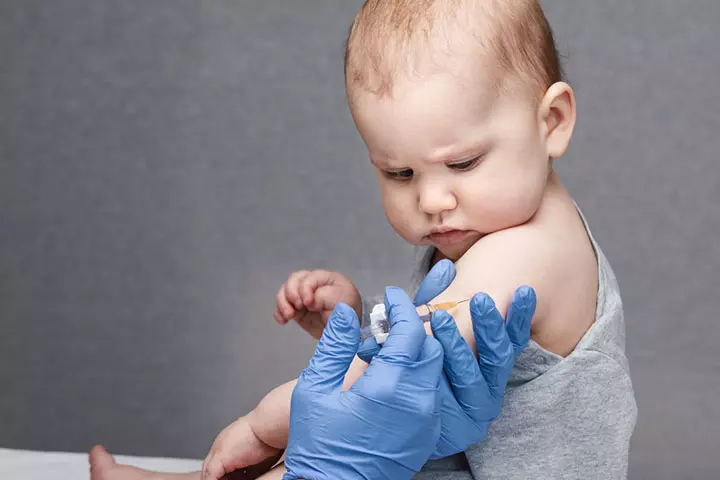
Image: Shutterstock
- Use saline drops to clear their noses and keep their airways open. Speak to a pediatrician who may show you the right way to clear the baby’s nose.
- Avoid exposure to any second-hand cigarette smoke and vehicular smoke. If your baby has allergies or asthma, keep them away from potential allergens.
- Consider discussing with a pediatrician about potential allergy testing if your baby shows signs of allergic reactions.
- Use a cool-mist humidifier if the air is dry, such as during winters. Moist air could make breathing easier for a baby.
- If you notice any symptoms of conditions such as sleep apnea and laryngomalacia, seek timely treatment.
In extreme cases, if you observe that the baby is not breathing and you have received certification to perform CPR for an infant, you may attempt CPR. If you lack training, seek medical attention immediately and refrain from performing CPR yourself (15). Also, do not administer medication to your baby without consulting a healthcare professional.
 Did you know?
Did you know?Frequently Asked Questions
1. Why does my baby gasp for air after feeding?
A baby could be gasping for air in between or after feeding due to laryngomalacia. The condition could make it difficult for babies to breathe during feedings, resulting in increased wheezing or squeaking (12).
2. Why do babies gasp for air after crying?
A baby may temporarily hold their breath for up to a minute while crying before exhaling, which can cause them to gasp for air afterward. Although this might worry a parent, it is mostly harmless. However, consult a pediatrician if these breath-holding episodes are frequent or last more than a minute (13).
3. Why is my baby breathing fast while sleeping?
Babies naturally breathe faster than adults, so it’s common for them to breathe rapidly while sleeping. It’s usually normal if their breathing stays between 30-60 breaths per minute and no other concerning symptoms appear. Nevertheless, if you’re constantly concerned about the baby’s breathing patterns, it’s a good idea to consult a doctor (15).
4. Can teething cause a baby to gasp for air?
Teething may not directly cause a baby to struggle for breath. However, teething discomfort and irritability can make them cry (16), leading to irregular breathing or brief, rapid breaths. However, if your baby’s breathing problems persist or worsen, consult a healthcare professional to rule out any underlying conditions.
5. What should I do if my baby gasps for air frequently?
If your baby frequently gasps for air, it is advisable to consult a pediatrician to rule out any underlying conditions. Keeping a diary of the occurrences, including related symptoms, may help your doctor provide a more accurate diagnosis. You may also try a few methods, such as using a cool-mist humidifier or nasal saline drops, to help your child breathe easily.
You may be concerned when you see your baby gasp for air. Babies may usually gasp for air during sleep if they have respiratory tract infections, persistent reflux disorders, cough, exposure to airborne allergens, or other medical conditions. You may try homecare tips such as avoiding allergy triggers and practicing correct feeding positions to prevent this condition from recurring. Nonetheless, get your baby evaluated by a medical professional if they display signs of fatigue, fever, pale skin, or severe breathing problems, which may lead to complications.
Infographic: Can A Baby Choke On Mucus?
Babies usually vomit out excess mucus. However, mucus in a baby’s nose or throat may sometimes cause mild choking. Identifying the signs of choking in babies is important to start giving them first aid and avoid complications. The infographic below describes what you should do if your baby chokes on mucus.

Illustration: Momjunction Design Team
Personal Experience: Source
MomJunction articles include first-hand experiences to provide you with better insights through real-life narratives. Here are the sources of personal accounts referenced in this article.
i. “Your baby has laryngomalacia”!!!????;https://mummawebbswinningworld.blogspot.com/2011/03/your-baby-has-laryngomalaciahuh.html
References
1. Changes in the newborn at birth; US National Library of Medicine
2. Brenda L Tesini Overview of Viral Respiratory Tract Infections in Children; MSD Manual
3. How to spot respiratory tract infections in children; Asthma + Lung UK
4. Asthma in Infants and Young Children; Asthma and Allergy Foundation of America
5. Asthma in Infants; Asthma and Allergy Foundation of America
6. Laryngomalacia; Nationwide Children’s Hospital
7. Sleep Apnea in Babies Symptoms Diagnosis and Treatment; The Children\’s Mercy Hospital
8. Whooping Cough (Pertussis) in Children; University of Rochester Medical Center Rochester
9. Respiratory Distress Syndrome (RDS) in Premature Babies; Cedars Sinai
10. Meconium aspiration syndrome; US National Library of Medicine
11. Gastroesophageal Reflux Disease (GERD) in Infants; Nationwide Children’s Hospital
12. Heart Murmurs in Children; American Academy of Pediatrics
13. Heart Murmurs Nemours Kids Health
14. Sepsis in Infants and Children; American Academy of Pediatrics
15. Pediatric Respiratory Rates Age Rate (breaths per minute); Department of Health, New York State
16. Teething: 4 to 7 Months; American Academy of Pediatrics
17. Laryngomalacia is my child’s noisy breathing serious?; Cincinnati Children’s
Community Experiences
Join the conversation and become a part of our nurturing community! Share your stories, experiences, and insights to connect with fellow parents.
Read full bio of Dr. Arlene Dijamco

Dr. Po-Chang Hsu is a medical doctor and medical content expert. He received his medical degree from Tufts University School of Medicine in Boston in 2016. Previously, he did a master’s degree at Harvard University and wrote a thesis on neuroimaging in schizophrenia patients at Brigham and Women’s Hospital. He currently works at Alpas Wellness.
Dr. Po-Chang Hsu is a medical doctor and medical content expert. He received his medical degree from Tufts University School of Medicine in Boston in 2016. Previously, he did a master’s degree at Harvard University and wrote a thesis on neuroimaging in schizophrenia patients at Brigham and Women’s Hospital. He currently works at Alpas Wellness.
Read full bio of Dr. Ritika Shah
Read full bio of Rohit Garoo
Read full bio of Vidya Tadapatri







